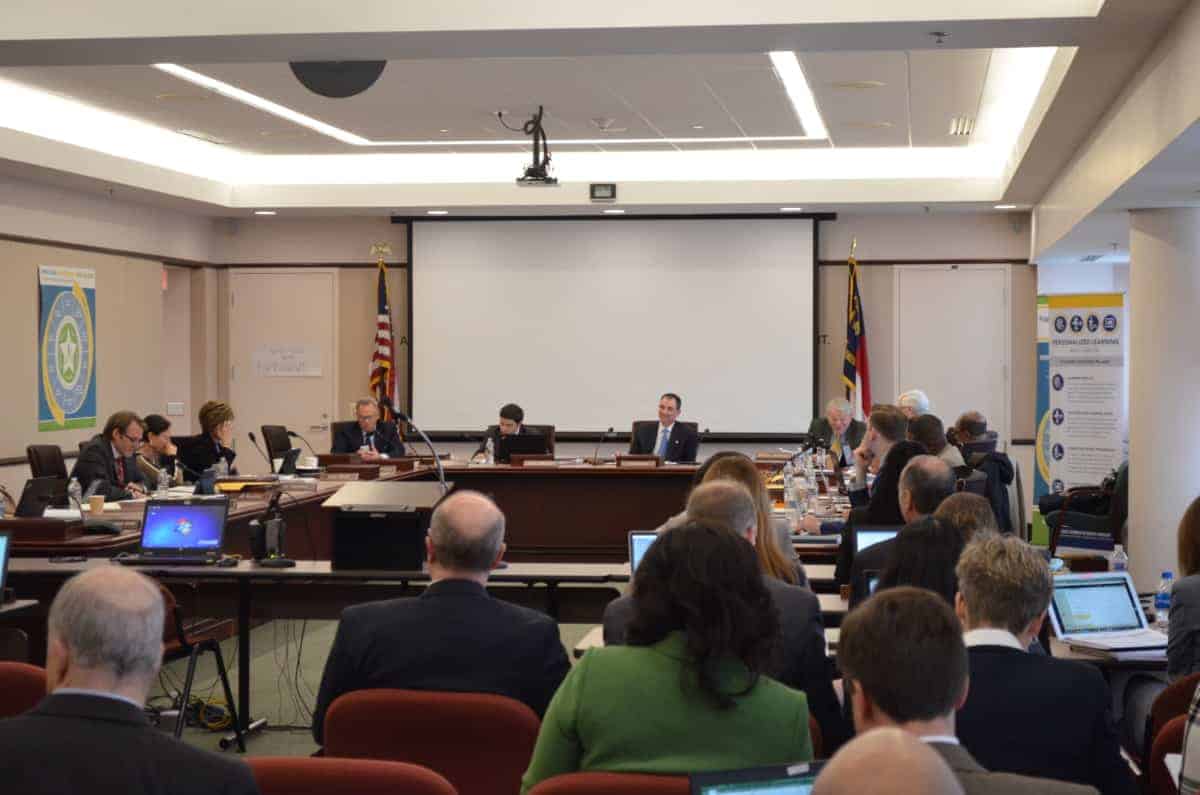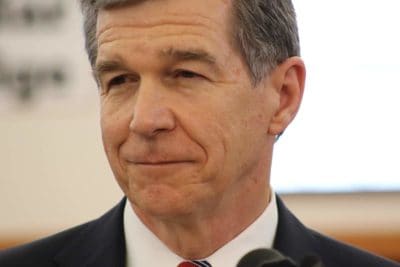The State Board of Education postponed a proposal to streamline the process that lets out-of-state teachers work in North Carolina to later in the month after an extensive discussion about how North Carolina can make the plan work.
The proposal from The Professional Educator Preparation and Standards Commission (PEPSC) would allow licensed out-of-state applicants with three or more years of teaching experience in another state who have met that state’s testing requirements to start teaching in North Carolina without going through extra hoops.
Last month, State Board members rejected that initial proposal, citing concerns about weakening the standards for teaching in North Carolina.
Later in February, the commission tried to address these concerns by recommending monitoring of out-of-state teachers for how effective they are once they come into the state. If a disproportionate number of teachers from any one state prove to be ineffective, then that state’s licensing process could be eliminated from the policy.
The State Board took up the issue again this week, but members were still uncomfortable with the plan. Ultimately, they reached consensus on the proposal with the caveat that language in current policy would remain in place that requires the State Department of Public Instruction to ensure out-of-state candidates took tests that uphold standards comparable to what North Carolina has.
Deputy State Superintendent Maria Pitre-Martin told the Board that DPI is not positioned to do what is necessary to make that work right now.
“We currently do not have the resources within the department to do that level of analysis,” she said. “That does not mean we would not work to get those resources here.”
The Board decided to punt their decision until a March 15th scheduled State Board call so that Superintendent Mark Johnson and DPI staff can figure out how to handle the new plan.
That decision Thursday followed extensive debate Wednesday about the proposal from PEPSC.
“If we want to have governors and legislators who put millions of dollars into teacher raises … we’d better have a high standard for teachers … and not create a back door,” said Board member JB Buxton.
Board member Olivia Oxendine said the additional monitoring plan presented problems that troubled her.
“I’m not comfortable with what I would see as placing states on some sort of watch list based on factors that may be out of their control,” she said.
Tom Tomberlin, director of District Human Resources at DPI, told the Board that he thought the plan wouldn’t diminish the standards of North Carolina teachers.
“With the monitoring piece, my belief of this is that these teachers will look like any other teachers,” he said.
The discussion over out-of-state teachers was a juxtaposition to a separate discussion about the math licensure exam that teachers in North Carolina have to take.
The State Board has been discussing a math exam that teachers have to pass for licensing requirements and concerns that when the state started using a new test, teachers weren’t faring so well. Additional analysis has shown that this may not necessarily be the case because policy changes around testing requirements obscured what was actually happening. Regardless, the issue has sparked a conversation not only about what types of tests should be used for licensure, but also around whether scores on a test are a good indication of teacher effectiveness alone, with some State Board members expressing uncertainty as to whether that’s the case.
At the crux of the issue around the plan for out-of-state teachers is whether other states’ licensure tests are as rigorous as North Carolina’s. Tomberlin told the Board he didn’t think any of the members were comfortable saying that passing a test should decide whether someone can teach or not.
Alan Duncan, vice chair of the Board, brought up the issue of recruitment. In talking to district superintendents, he said they were mostly in favor and saw the proposal as an opportunity to get needed teachers into their districts.
“The standpoint I get from superintendents … has been if a teacher has passed in some state, it’s not for me to be able to go back and reassess,” he said.
State Board Chair Eric Davis said that his issue was that he isn’t able to assess every other state’s standards and compare them to North Carolina’s.
“I don’t know what a North Carolina standard would be if we adopt this proposal,” he said.
The new plan proposed by the Board would alleviate that concern. The Board will make its decision March 15th.



